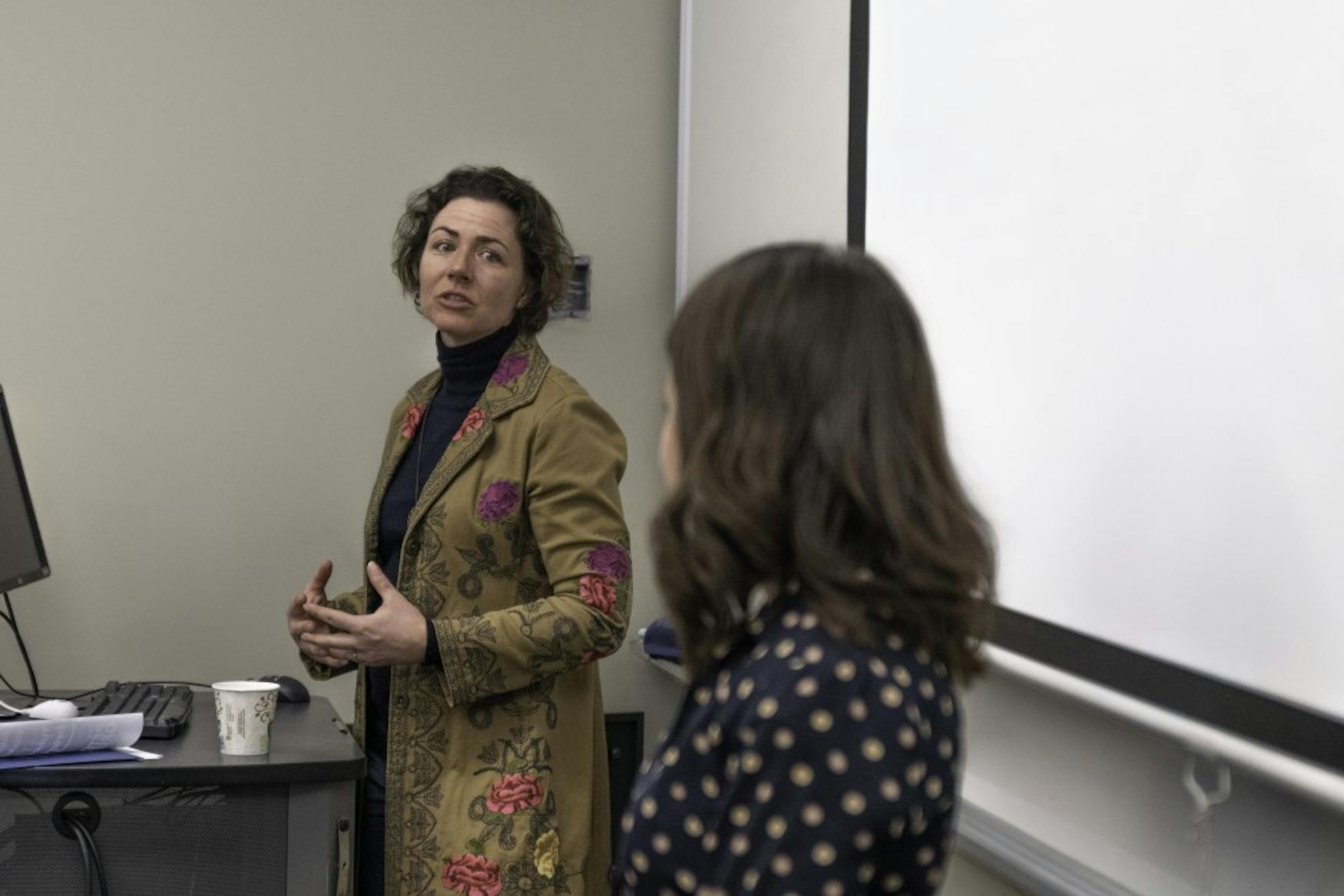Film screening explores school-to-prison pipeline
The International Center for Ethics, Justice and Public Life held a screening of “Notes From the Field” on Thursday. Written and played by Anna Deavere Smith as a one-woman show, the film depicts “the American school-to-prison pipeline that pushes underprivileged, minority youth out of the classroom and into incarceration,” according to the event description. In the film, Smith critiques the American education and prison system by performing the lives of 18 minority students, activists, politicians and current and former inmates.
The event was organized as a precursor to the Richman Distinguished Fellow in Public Life award ceremony and presentation, “Snapshots: Portraits of a World in Transition,” which will be held this Thursday. Smith, the recipient of the Richman Distinguished Fellow in Public Life, is a playwright, actor and educator. She uses “her singular brand of theatre to explore issues of community, character, and diversity in America,” according to the Brandeis University website. In order to explain complex American identities and controversial issues in “Notes From the Field,” Smith performs roles that depict the people she has interviewed.
Prior to the screening, Prof. Rosalind Kabrhel (LGLS) spoke to the audience about the opportunities the Legal Studies program affords to fight injustices in the world. Kabrhel talked about the experiential classes offered by the University that require students to do an internship in the criminal justice field. She talked about the class Investigating Justice, which examines the intersection of journalism and the justice system. She also introduced LGLS 89A: Law and Society Internship and Seminar, which places students into internships relating to social justice and law, such as government law offices and nonprofit organizations.
Kabrhel said this year they were fortunate they could place students in various internships including the ones in the division of the Department of Youth Services, the Department of Children and Families Services and the juvenile probation departments. “I’ve had students placed at the Boston public schools and also three students who are working with the Petey Greene program, and they are being trained to tutor individuals who are incarcerated.” For Kabrhel these two classes were “awesome opportunities for students and, in some cases faculty as well, to get involved with individuals who are incarcerated in the hopes of providing them with better opportunities when they are released from prison.” She emphasized that students do not have to take these courses in order to get involved with these organizations; they can also volunteer.
Kabrhel later introduced Stefanie Grossano, regional manager of the Petey Green Program in Massachusetts. The program “supplements education in jails, prisons, and detention centers, by preparing volunteers to provide free, quality tutoring and related programming to support the academic achievement of incarcerated people,” according to its website. Grossano explained, “We do that by trading folks like yourself to act as tutors or teaching assistants. In Massachusetts, we work in 10 different facilities. We work in two youth centers. We work in four county jails, three state prisons, and pre-release centers. We send about 120 volunteers in each of those facilities.”
Grossano also said that college students can volunteer for a semester, during which they would be trained to be effective tutors for prisoners as well as ethical volunteers.



Please note All comments are eligible for publication in The Justice.